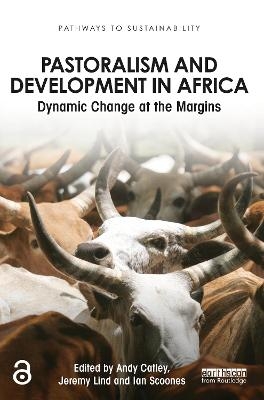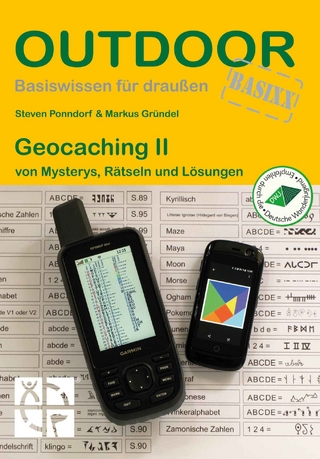
Pastoralism and Development in Africa
Routledge (Verlag)
978-0-415-54072-8 (ISBN)
Once again, the Horn of Africa has been in the headlines. And once again the news has been bad: drought, famine, conflict, hunger, suffering and death. The finger of blame has been pointed in numerous directions: to the changing climate, to environmental degradation, to overpopulation, to geopolitics and conflict, to aid agency failures, and more. But it is not all disaster and catastrophe. Many successful development efforts at ‘the margins’ often remain hidden, informal, sometimes illegal; and rarely in line with standard development prescriptions. If we shift our gaze from the capital cities to the regional centres and their hinterlands, then a very different perspective emerges. These are the places where pastoralists live. They have for centuries struggled with drought, conflict and famine. They are resourceful, entrepreneurial and innovative peoples. Yet they have been ignored and marginalised by the states that control their territory and the development agencies who are supposed to help them. This book argues that, while we should not ignore the profound difficulties of creating secure livelihoods in the Greater Horn of Africa, there is much to be learned from development successes, large and small.
This book will be of great interest to students and scholars with an interest in development studies and human geography, with a particular emphasis on Africa. It will also appeal to development policy-makers and practitioners.
Professor Andy Catley is a Research Director at the Feinstein International Center and Clinical Associate Professor at the Cummings School of Veterinary Medicine, Tufts University. He established the Tufts University Africa Regional Office in Ethiopia in 2005, and directs the research program Understanding the Future of Pastoralism in Africa. Ian Scoones is a Professorial Fellow at the Institute of Development Studies at the University of Sussex. He is a co-director of the ESRC STEPS Centre and the joint convenor of the Future Agricultures Consortium. Dr Jeremy Lind is Research Fellow at the Institute of Development Studies at the University of Sussex. He is convenor of the Pastoralism Theme within the Future Agricultures Consortium.
1. Development at the Margins: Pathways of Change in the Horn of Africa Andy Catley, Jeremy Lind and Ian Scoones Part 1: Resources and Production 2. Mobility and the Sustainability of the Pastoral Production System in Africa: Perspectives of Contrasting Paradigms Gufu Oba 3. Range Enclosures in Southern Oromia, Ethiopia: An Innovative Response or Erosion in the Common Property Resource Tenure? Boku Tache Dida 4. Pastoralists and Irrigation in the Horn of Africa: Time for a Rethink? Stephen Sandford 5. Replacing Pastoralism with Irrigated Agriculture in the Awash Valley, North-Eastern Ethiopia: Counting the Costs Roy Behnke and Carol Kerven 6. Climate Change in Sub-Saharan Africa: Consequences and Implications for the Future of Pastoralism Polly Ericksen Part 2: Commercialisation and Markets 7. Moving Up or Moving Out? Commercialization, Growth and Destitution in Pastoralist Areas Andy Catley and Yacob Aklilu 8. Shipping Out the “Desert Ship”: Camel Marketing in the Northern Kenya/Southern Ethiopia Borderlands Hussein Mahmoud 9. Responsible Companies and African Livestock-Keepers: Acting, Teaching but not Learning? John Morton 10. Town Camels: Pastoral Innovation in a Fast Changing World: Case Study from Gode Town, Somali Regional State, Ethiopia Abdi Hussein Part 3: Land and Conflict 11. The Future of Pastoralist Conflict Paul Goldsmith 12. Land Grabbing in the Eastern African Rangelands John Galaty 13. The Precipice of a Catastrophe: Land Deals and the Changing Political Economy of Pastoralism in the Tana Delta, Kenya Abdirizak Nunow 14. Squeezed from all Sides: Changing Resource Tenure and Pastoralist Innovation on the Laikipia Plateau, Kenya John Letai and Jeremy Lind 15. Mobile Pastoralism and Land grabbing in Sudan: Impacts and Responses Mustafa Babiker 16. The Need to strengthen Land Laws in Ethiopia to protect Pastoral Rights Abebe Mulatu and Solomon Bekure Part 4: Alternative Livelihoods 17. Seeking Alternative Strategies: Settled Pastoralists as Farmers, Town Dwellers, Wage Earners, and Traders Elliot Fratkin 18. Reaching Pastoralists with Formal Education: a Distance Learning Strategy for Kenya David Siele, Jeremy Swift and Saverio Kratli 19. Social Protection for Pastoralists: Just Give them Cash? Stephen Devereux 20. Women and Economic Diversification in Pastoralist Communities: A Regional Perspective John Livingstone and Everse Ruhindi Conclusion 21. Reflections on the Future of Pastoralism in the Horn of Africa Peter Little
| Reihe/Serie | Pathways to Sustainability |
|---|---|
| Zusatzinfo | 24 Tables, black and white; 23 Line drawings, black and white |
| Verlagsort | London |
| Sprache | englisch |
| Maße | 156 x 234 mm |
| Gewicht | 510 g |
| Themenwelt | Naturwissenschaften ► Geowissenschaften ► Geografie / Kartografie |
| Sozialwissenschaften ► Politik / Verwaltung ► Europäische / Internationale Politik | |
| Sozialwissenschaften ► Soziologie ► Spezielle Soziologien | |
| Technik ► Umwelttechnik / Biotechnologie | |
| Wirtschaft ► Volkswirtschaftslehre | |
| ISBN-10 | 0-415-54072-0 / 0415540720 |
| ISBN-13 | 978-0-415-54072-8 / 9780415540728 |
| Zustand | Neuware |
| Haben Sie eine Frage zum Produkt? |
aus dem Bereich


